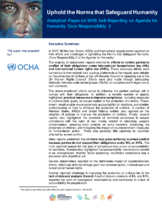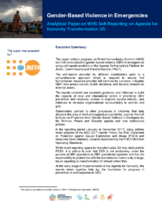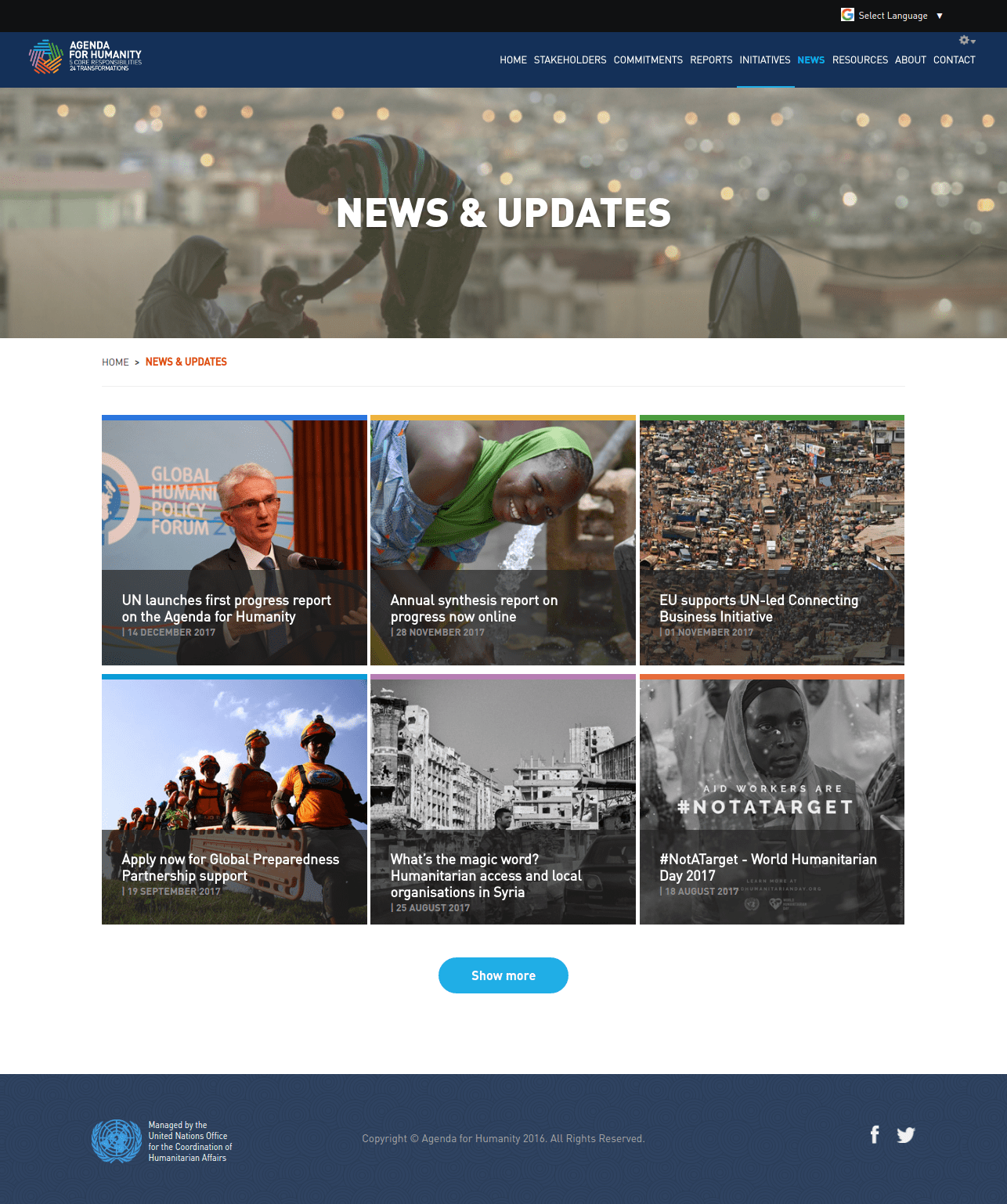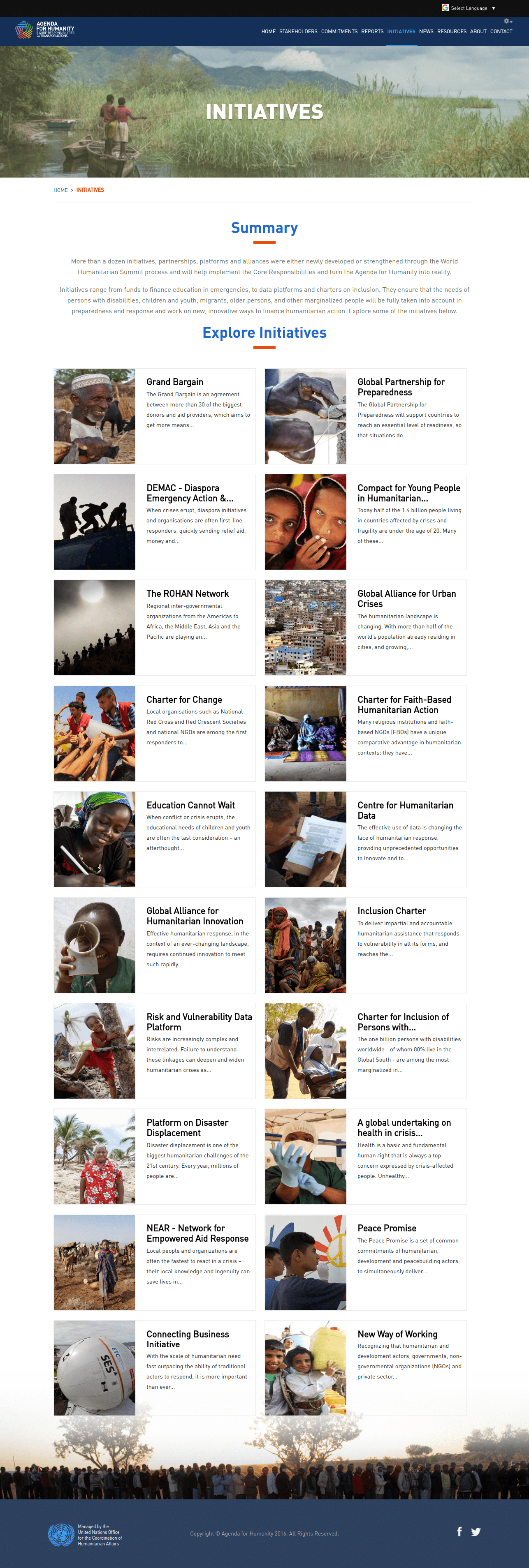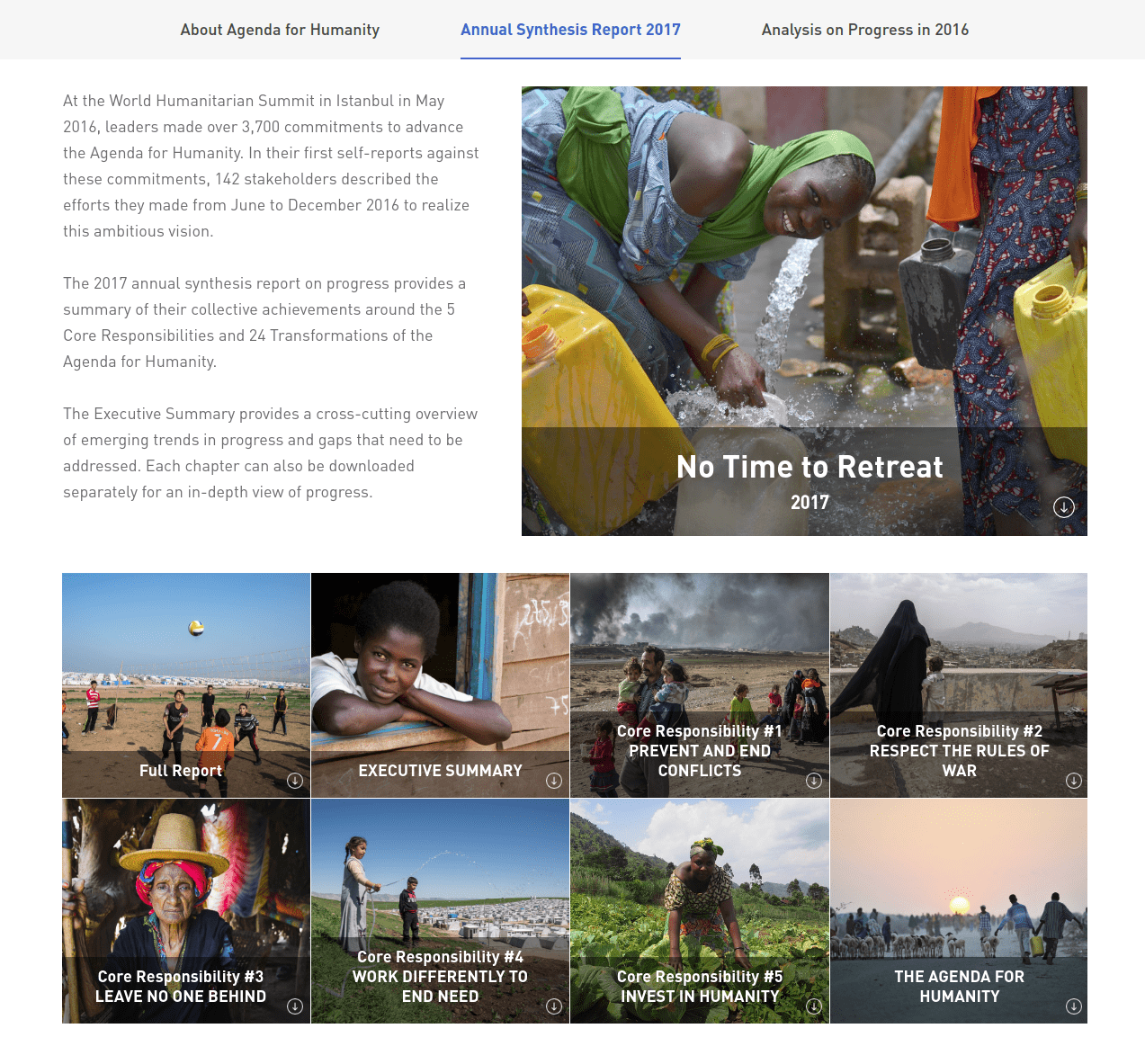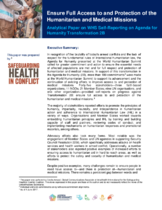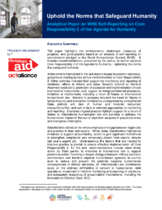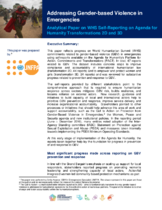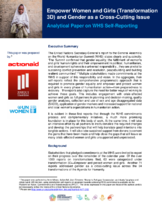Uphold the norms that safeguard humanity
Even wars have limits: minimizing human suffering and protecting civilians require strengthened compliance with international law.
Every day, civilians are deliberately or indiscriminately injured and killed. Airstrikes rip families apart. Humanitarian and healthcare workers are kidnapped and killed, medical facilities and ambulances looted and destroyed as a tactic of warfare. Access for humanitarian workers is being arbitrarily denied and obstructed to exacerbate suffering. Women and girls are abused and sold as sexual slaves. Schools, hospitals and places of worship are regularly bombed. States need to respect the rules they have endorsed in international humanitarian and human rights law. This means complying with the rules of distinction, proportionality and precaution and stopping bombing and shelling populated areas, where civilians account for the vast majority of deaths.
Agenda for Humanity Transformations
The Agenda for Humanity advocates for five strategic and normative transformations that are necessary in order to increase respect for the rules of war.

Respect and protect civilians and civilian objects in the conduct of hostilities
Protect civilians and civilian property: State and non-State parties to armed conflict must comply with the international customary rules of distinction, proportionality and precautions. Schools, hospitals, places of worship and other critical civilian infrastructure must be spared from military force and military use. Constraint should be exercised in the use of explosive weapons in populated areas and political commitments made to this effect.

Ensure full access to and protection of the humanitarian and medical missions
Ensure delivery of humanitarian and medical assistance: Parties to armed conflict must ensure essential needs for food, water, medical care, shelter and protection are met. Where those needs are not being met, parties to armed conflict must allow and facilitate access for impartial humanitarian assistance. Access cannot be arbitrarily denied. All State and non-State parties have the responsibility to ensure humanitarian and medical health-care workers and facilities are protected and that all necessary political, legal, social and safety measures are put in place and strictly adhered to in order to protect them.

Speak out on violations
Speak out on violations: States, regional, national and international organizations must make use of every available tracking, investigative, reporting and decision-making mechanism to enhance compliance with international humanitarian law. Global leaders, governments, the United Nations and other institutions must speak out against violations, make the facts known and systematically condemn them.

Take concrete steps to improve compliance and accountability
Improve compliance and accountability: All States must use their political and economic leverage to ensure that parties to armed conflict comply with international humanitarian and human rights law. Governments need to combat impunity through enacting robust legislation, investigating violations and prosecuting perpetrators. Increased attention must be given to preventing and prosecuting gender-based violence. The UN Security Council should automatically meet and support timely and decisive action whenever serious violations of international humanitarian or human rights law are alleged and the protection of civilians is in jeopardy.

Uphold the rules: a global campaign to affirm the norms that safeguard humanity
Stand up for the rules of war: A global effort to mobilize States, civil society and other global leaders to demand greater compliance with international humanitarian and human rights law must be launched. All States should accede and implement core international humanitarian law and human rights instruments with regular meetings of States parties convened to discuss progress and challenges in implementation with the aim to strengthen mutual accountability. Other international and regional forums should be utilized to increase regular dialogue on compliance.
Summary of Commitments made

* The count includes Core, Individual and Joint commitments
At the World Humanitarian Summit in May 2016, leaders from Member States, civil society and humanitarian organizations made more than 800 individual and joint commitments to uphold the norms that safeguard humanity. Click below to browse stakeholders' commitments to Core Responsibility Two.
Progress Reports
Click the button below to browse stakeholders' progress reports submitted against Core Responsibility Two.


